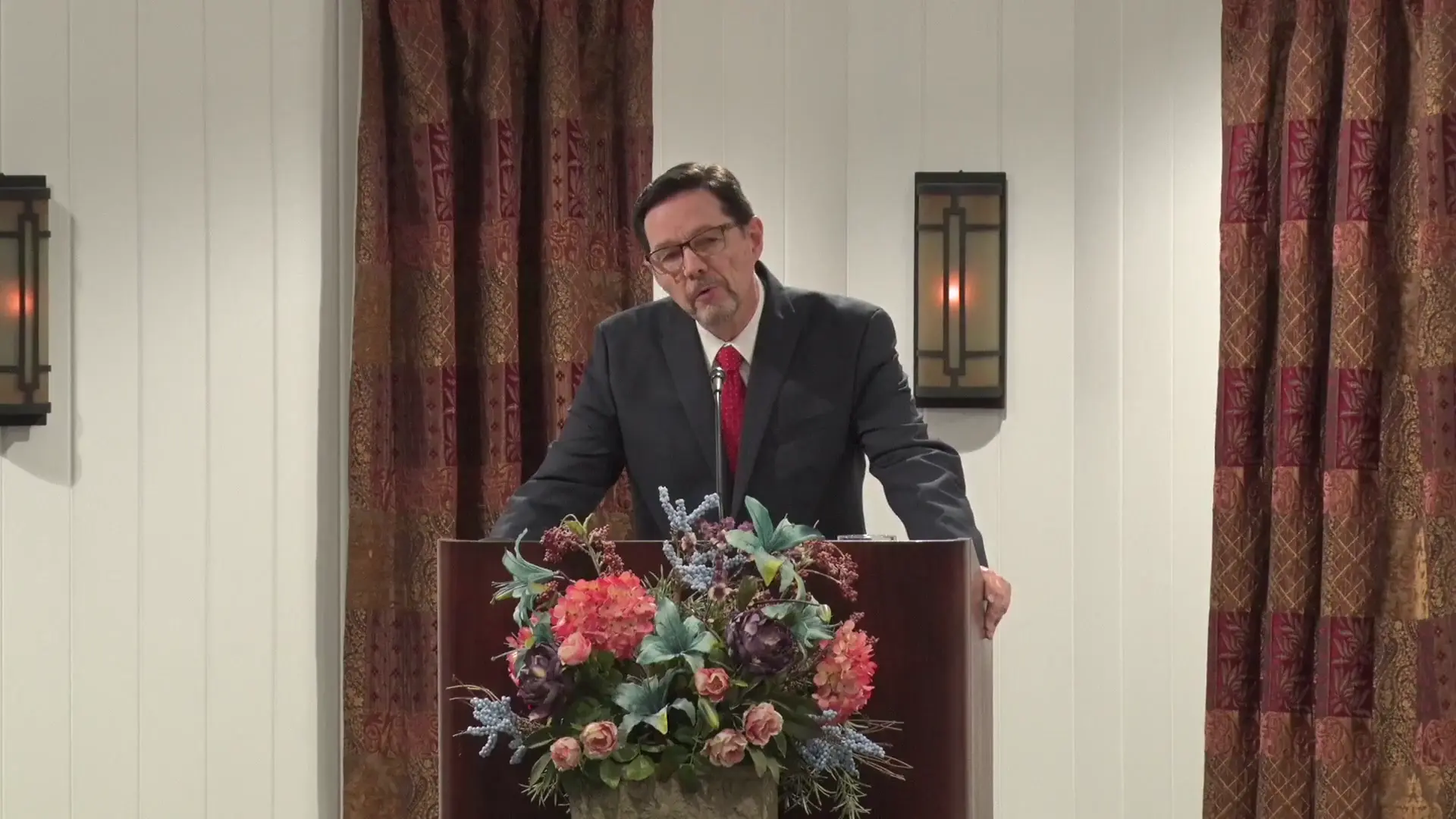Filter by Categories
Acquainted with Grief
Sermonette by David C. GrabbeChrist's bearing of our sicknesses and infirmities may have taken place throughout His life. He may have been acquainted with ill health for our benefit.
Death Is Not the End (Part Three)
CGG Weekly by Richard T. RitenbaughHaving faced the perils of life with disturbing regularity, Paul was intimately acquainted with the certainty of death. He can provide us a positive example.

House of Mourning
Sermon by Bill OnisickThe prospect of death makes one more mature and self-aware, illuminating the meaning of Ecclesiastes 7:2-4 that it is better to go to the house of mourning.
Not To Reason Why
Commentary by Richard T. RitenbaughWhy did God allow this tragedy? Why do the good suffer and the evil prosper? We want answers to these questions, but Jesus points us in another direction.
Lamentations (Part Three)
Sermon by Richard T. RitenbaughPersonified Jerusalem, whom God depicts as a grieving widow, blames others for her troubles while overlooking her own sins as the real cause of her sorrow.
A Time to Tear
Sermon by Charles Whitaker (1944-2021)The practice of rending clothes symbolizes sorrow, agony, despair, and hopelessness, a realization that God alone can restore the profound loss.
The Miracles of Jesus Christ: The Resurrection of Lazarus (Part One)
Bible Study by Martin G. CollinsAmong Christ's greatest miracles is the resurrection of Lazarus. John 11 details Jesus' approach to and way of expressing the concept of death, giving hope.
Lamentations (Part Six)
Sermon by Richard T. RitenbaughIn Lamentations 3, the narrator finally convinces Lady Jerusalem that her own sins have caused her necessary punishment and affliction by God.
The Beatitudes, Part Three: Mourning
'Personal' from John W. RitenbaughBlessedness and mourning seem contradictory, but obviously Jesus saw spiritual benefits to sorrow. True, godly mourning gets high marks from God.
Of Death
Sermon by James BeaubelleWhile some view death as a transition or displacement of cosmic energy, scripture affirms that death is real, appointed to all, and occurs under God's authority.

Those Who Mourn
Sermon by Richard T. RitenbaughWorldly sorrow leads to death while godly sorrow leads to repentance and life. After godly repentance, sorrow is swallowed up in profound joy.
Lamentations (Part Five)
Sermon by Richard T. RitenbaughThe expressions of sorrow in the Psalms far outnumber expressions of praise, indicating that the Hebrew culture has almost made the lamentation an art form.
On The Value of Joy
Commentary by John W. Ritenbaugh (1932-2023)Because we live in a troubling world, our reserves of joy are probably somewhat low, perhaps making us feel that we are deficient in God's Holy Spirit.
Lamentations (Part Four)
Sermon by Richard T. RitenbaughIn Lamentations 2, Lady Jerusalem sidesteps godly repentance, opting instead for self-centered recrimination against Almighty God.

It's Enough! Now, Lord, Take My Life!
Sermon by Martin G. CollinsGreat luminaries of faith all wrestled with devastating despair. We must face depression with honesty, compassion, and unwavering trust in God.
Strategies for Escaping Babylon (Part Three)
Sermon by David F. MaasCreating a sense of humor will make it easier to escape the satanic lies of Babylon, or at least make it more endurable.
Assurance (Part Three): Glory and Hope
Sermon by Martin G. CollinsThe sufferings we go through are minuscule compared to the glory which we will receive, completely eclipsing the glory of Adam and Eve before their fall.
Back to Life (Part Four)
Sermon by Martin G. CollinsGod's love does not shield us from sickness, pain, sorrow, or death. There are several scriptural contexts in which Jesus shed tears and expressed grief.
Abraham (Part Twelve)
Sermon/Bible Study by John W. RitenbaughBased on his long friendship with God, Abraham could systematically calculate the reliability of God's promises even in the lack of visual evidence.
Made His Wonderful Works to Be Remembered (Part Two)
Sermon by Mark SchindlerThose called by God now have a unique privilege and responsibility to live in God's truth, distinguishing them from those who have hope but lack understanding.
Tearing Your Clothes
Sermonette by James C. StoertzTearing one's clothing has lost its meaning, such as when it is used as a form of vanity like in torn clothing fashions or as a form of faux humility.

Job and Self-Evaluation (Part Two): Perspective
Sermon by Richard T. RitenbaughJob's three 'friends,' exemplars of all men, made critical assumptions and judgments about Job on the basis of biased religious and cultural tradition.